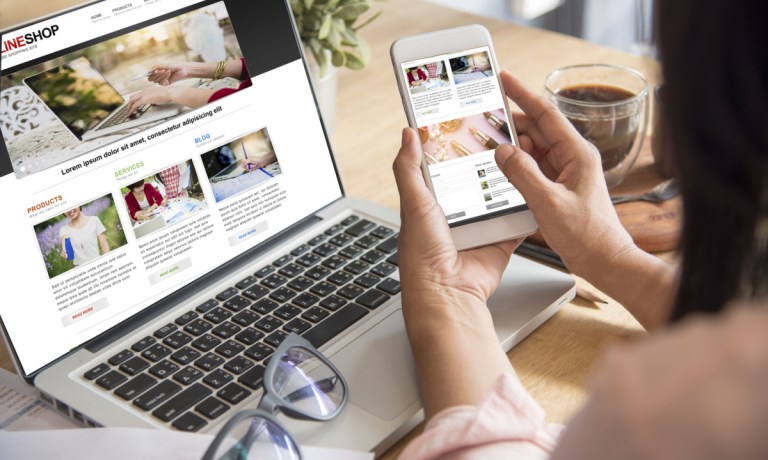Is Diversifying the Answer? Sean ‘Diddy’ Combs Says No, Launches Curated Marketplace

While there’s been a growing recognition around the mass potential of niche markets, brands and retailers have recently looked to diversify their offerings, hoping to convert more browsers into paying customers. But is it the right move for everyone? Should brands and retailers play the long game by sticking to their niche or should they respond to economic downtowns and consumer shifts?
A lesson brands and retailers learned during the pandemic is that rewards come to those that can change and adapt the fastest. Another valuable lesson, however, is the significance of authenticity.
Brands and Retailers With New Strategies
H&M CEO Helena Helmersson recently revealed the company would be expanding its range to include third-party brands, according to a June 29 Reuters report.
Through the new strategy, shoppers will have the opportunity to purchase sneakers from brands such as Adidas and New Balance, as well as clothing from the Swedish mountaineering label Klättermusen, across H&M’s extensive network of stores and websites, including Arket, Cos, and & Other Stories.
Fast-fashion retailer Shein has also recently re-strategized, expanding beyond fashion to include home appliances and smart home products.
According to a June 15 press release, the expanded range of product categories now encompasses items as diverse as portable washing machines, remote control lighting, bathroom fixtures and wallpaper.
In addition, Shein has formed strategic alliances with well-known global brands like footwear label Skechers and motherhood brand Lansinoh. The company is actively engaging in collaborations with various boutiques to enrich its range of fashion, beauty and lifestyle offerings, per the press release.
Why Brands Diversify
A major motivation behind diversification is to meet the changing needs and lifestyles of consumers. By offering a wider range of products, brands and retailers have a better opportunity to see conversions. At least, that’s the assumption.
Another reason is that by diversifying offerings, brands and retailers can increase their chances of staying competitive in the ever-evolving retail landscape. By incorporating products from renowned brands like Adidas and New Balance, H&M can enhance its appeal and maintain relevance among consumers who seek specific brand preferences. Similarly, Shein’s expansion into home appliances and smart home products allows the brand to tap into new consumer demands.
Why It May Not Work
One crucial aspect is authenticity, where the new offerings should align with the brand’s identity and resonate with consumers. Diversifying into unrelated categories can create a sense of disconnect and dilute the brand’s authenticity.
In Shein’s case, for example, consumers who associate the brand with trendy clothing might question its expertise and credibility when it comes to home appliances.
Another brand looking to diversify is Etsy, an established platform for handmade and vintage items, which in May announced its intention to move beyond its niche market.
Beyond Crafts
Etsy is now actively working to widen its appeal and transform into a comprehensive shopping platform catering to everyday consumers. The company aims to expand its customer base and diversify its offerings accordingly.
“Buyers too often think of us only for very specific needs are at the end of their shopping journey when they can’t find the item somewhere else,” Etsy CEO Josh Silverman said on an earnings call.
Read more: Etsy Wants Shoppers to Shop With Them Every Day, Not Once in a While
How P. Diddy Is Planning a Wide Niche
Rapper, record producer and entrepreneur Sean “Diddy” Combs this week introduced a curated eCommerce platform dedicated to showcasing products created and sold by Black entrepreneurs.
Named “Empower Global,” the marketplace aims to expand the reach of Black-owned businesses, aiming to uplift the Black economy and foster opportunities for growth and expansion, according to a Wednesday (July 12) press release.
During its initial launch, the website showcased a diverse range of more than 70 brands spanning fashion, beauty, art and various other sectors. The platform currently offers a vast selection of over 1,000 items from brands such as Silver & Riley, Actively Black, Scotch Porter, Coco & Breezy, Kultured Misfits, Gwen Beloti Jewelry, Buttah Skin, Marie Hunter Beauty, Pound Cake, B.M. Franklin & Co., Beauty Stat Cosmetics, Cecilia’s House, Cise, Cool Creative Clothing, June 79, Rebecca Allen and others.
Combs, who is also the chairman of Combs Global, has set an ambitious goal of onboarding 200 brands by the end of the year.
“My mission has always been to empower Black entrepreneurs and create more opportunities for them to access the resources, tools and support needed to build successful businesses,” Combs said in the announcement. “Empower Global will uplift Black entrepreneurs, keep dollars circulating in our community, and make buying Black a lifestyle.”
To provide additional assistance to the participating businesses, Empower Global and UPS have joined forces for the “Days of Deals” initiative. Under this program, chosen sellers offer exclusive discounts on their products, accompanied by complimentary UPS shipping for every purchase made on the platform.
For all PYMNTS retail coverage, subscribe to the daily Retail Newsletter.